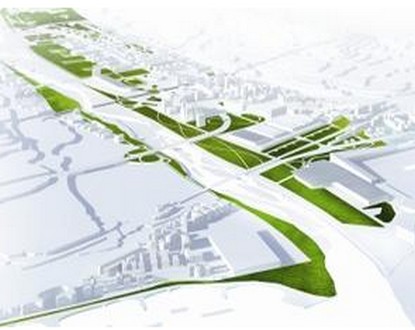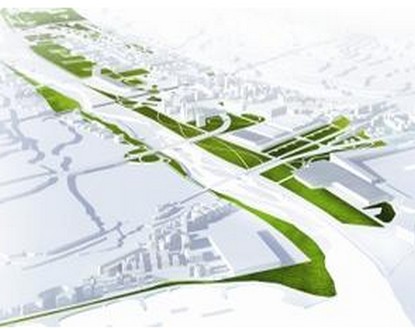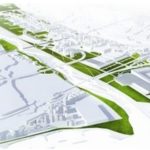We receive and publish this contribution from Jacques Victor, general advisor of the Communist and Republican group.
 Sometimes the news unintentionally offers us shortcuts that are better than many speeches. The financing agreement for the Var Plain Development Project, within the framework of the National Interest Operation, which brings together the State, the Region, the Department, the Metropolis, and the city of Nice for a public funding amount of 64.5 million euros was then an occasion to promote the development of a 10,000-hectare area that would be dedicated to “housing, research, training, and the establishment of cutting-edge businesses,” which would justify the term “eco-valley” so dear to the Deputy Mayor of Nice, President of the Metropolis.
Sometimes the news unintentionally offers us shortcuts that are better than many speeches. The financing agreement for the Var Plain Development Project, within the framework of the National Interest Operation, which brings together the State, the Region, the Department, the Metropolis, and the city of Nice for a public funding amount of 64.5 million euros was then an occasion to promote the development of a 10,000-hectare area that would be dedicated to “housing, research, training, and the establishment of cutting-edge businesses,” which would justify the term “eco-valley” so dear to the Deputy Mayor of Nice, President of the Metropolis.
Alas! In the same week, the opening of the public inquiry on the commercial aspect of the Grand Stadium revealed that 26,400 square meters, more than double the current Lingostière zone, would be dedicated to the establishment of commercial areas! This confirms, in passing, that the creation of this Grand Stadium is initially a pretext for a gigantic real estate operation that is hardly consistent with “the ability of actors to rationalize space management with a view to preserving environmental quality,” as indicated in the OIN prefiguration report as an essential guarantee of success.
For an OIN that Christian ESTROSI presented in 2008 during the publication of the decree establishing the Public Establishment for the Development of the Var Plain as “an example of sustainable and concerted territorial development,” everyone can notice the gulf between the initial statements of intent and the implementation of a project that, instead of an “eco-valley,” increasingly takes on the contours of a “business valley.” This is in defiance of the guidelines set by the Territorial Development Directive, which emphasized, for the Saint-Isidore sector, “the necessary balance between the agricultural vocation of the land and the needs linked to the growth of the agglomeration,” notably specifying that agricultural sectors “are intended to have their agricultural function perpetuated or failing that to evolve towards natural management under the conditions provided for in the last paragraph of III-123-3 (page 79) concerning agricultural spaces.”
We are far from that today, with all the dangers that such a concentration of activities in this sector, with the intensification of movements it induces (with a planned creation of nearly 1,400 parking spaces!), can generate in terms of air pollution, damage to the aquifer nevertheless essential for the Alpes-Maritimes, and the elimination of the numerous wastes that a zone of this extent will inevitably lead to. In a part of the valley where countless traffic flows already converge, where agricultural areas are increasingly threatened, where flood risks persist, we are today the antithesis of the principles of sustainable development but where the color of money, which as everyone knows has no smell, becomes more omnipresent every day. It becomes more urgent than ever to oppose this destructive logic of the natural spaces of our department, essential for preserving the quality of life of the populations who live and work there.



